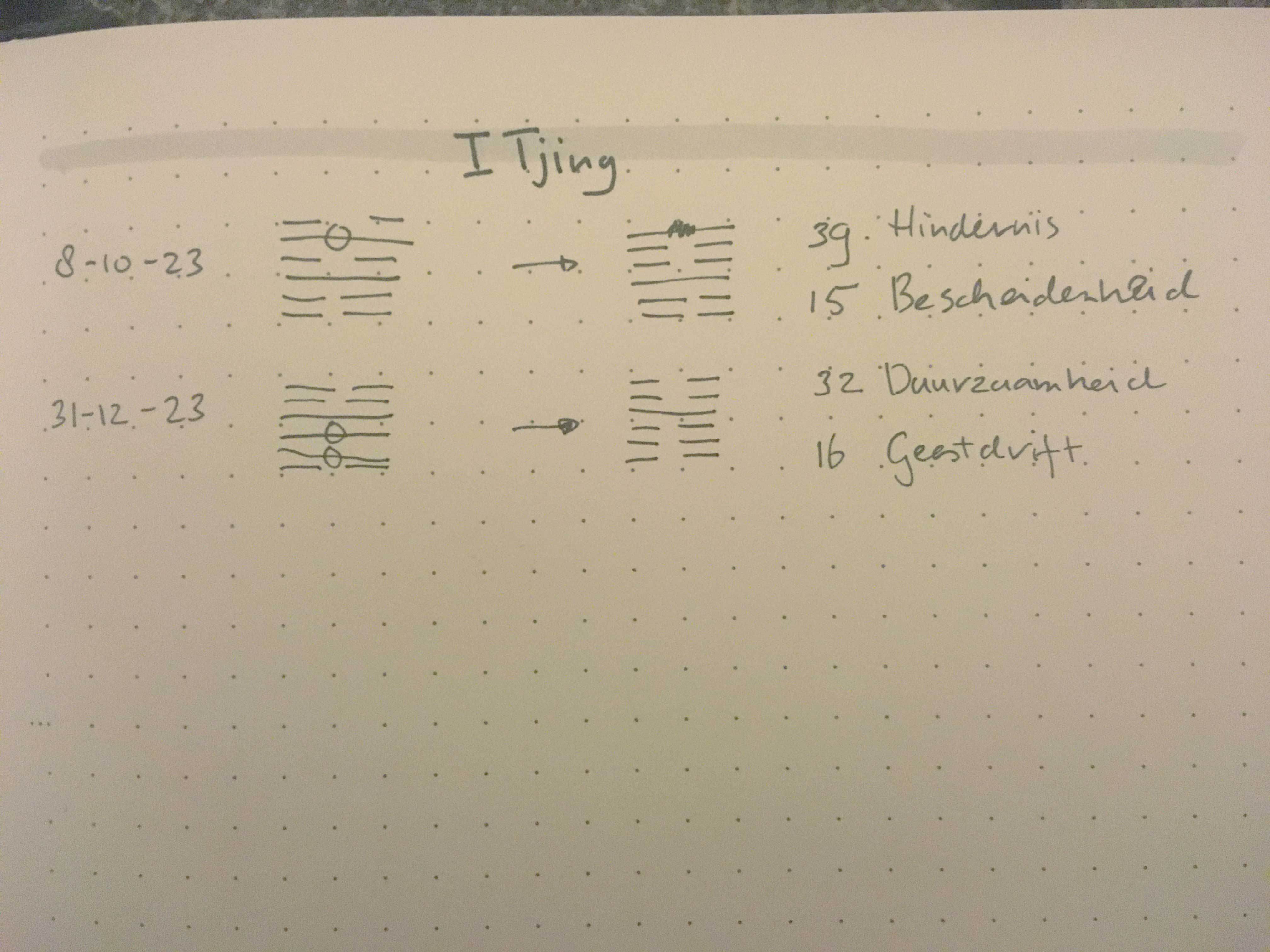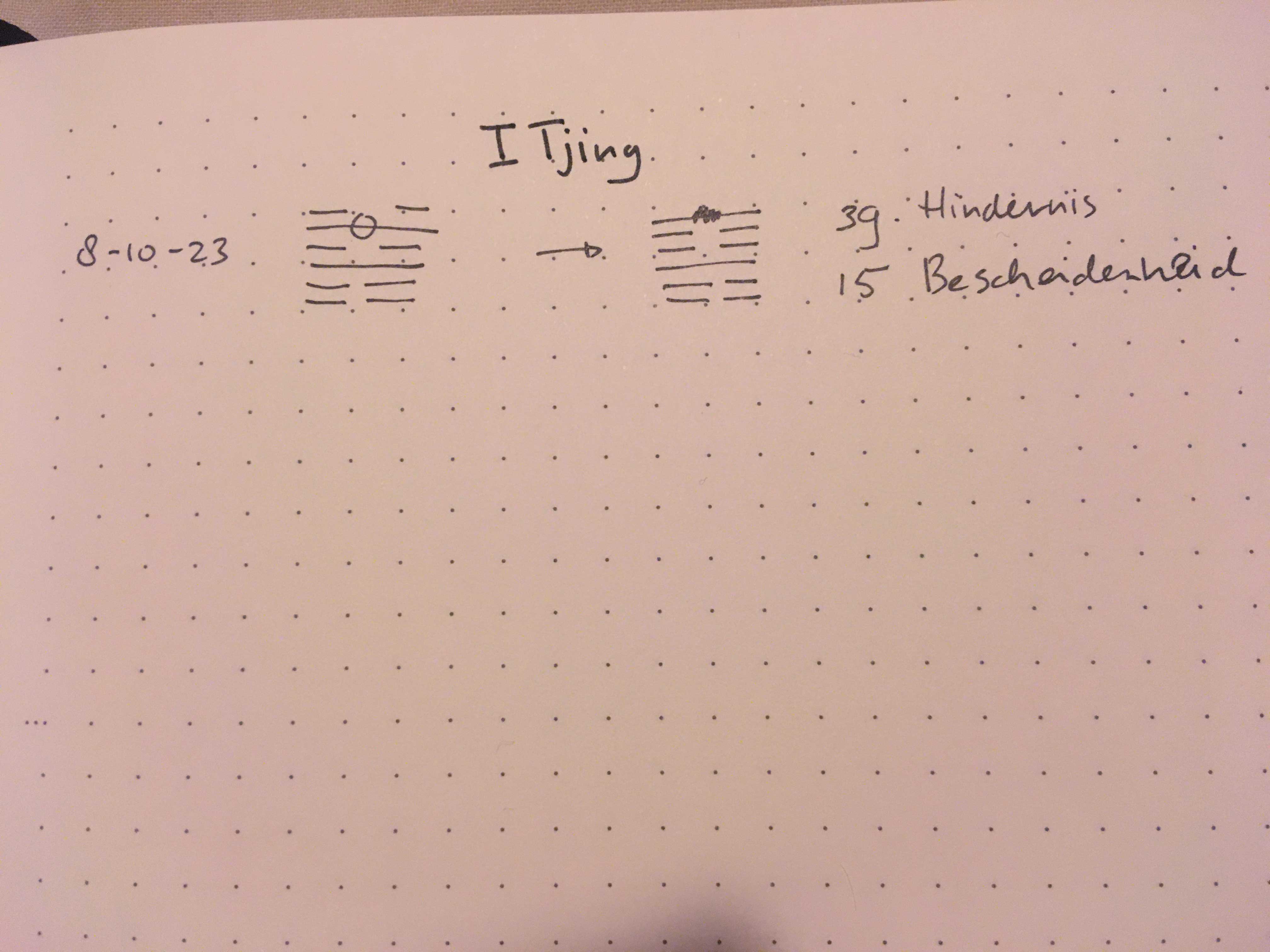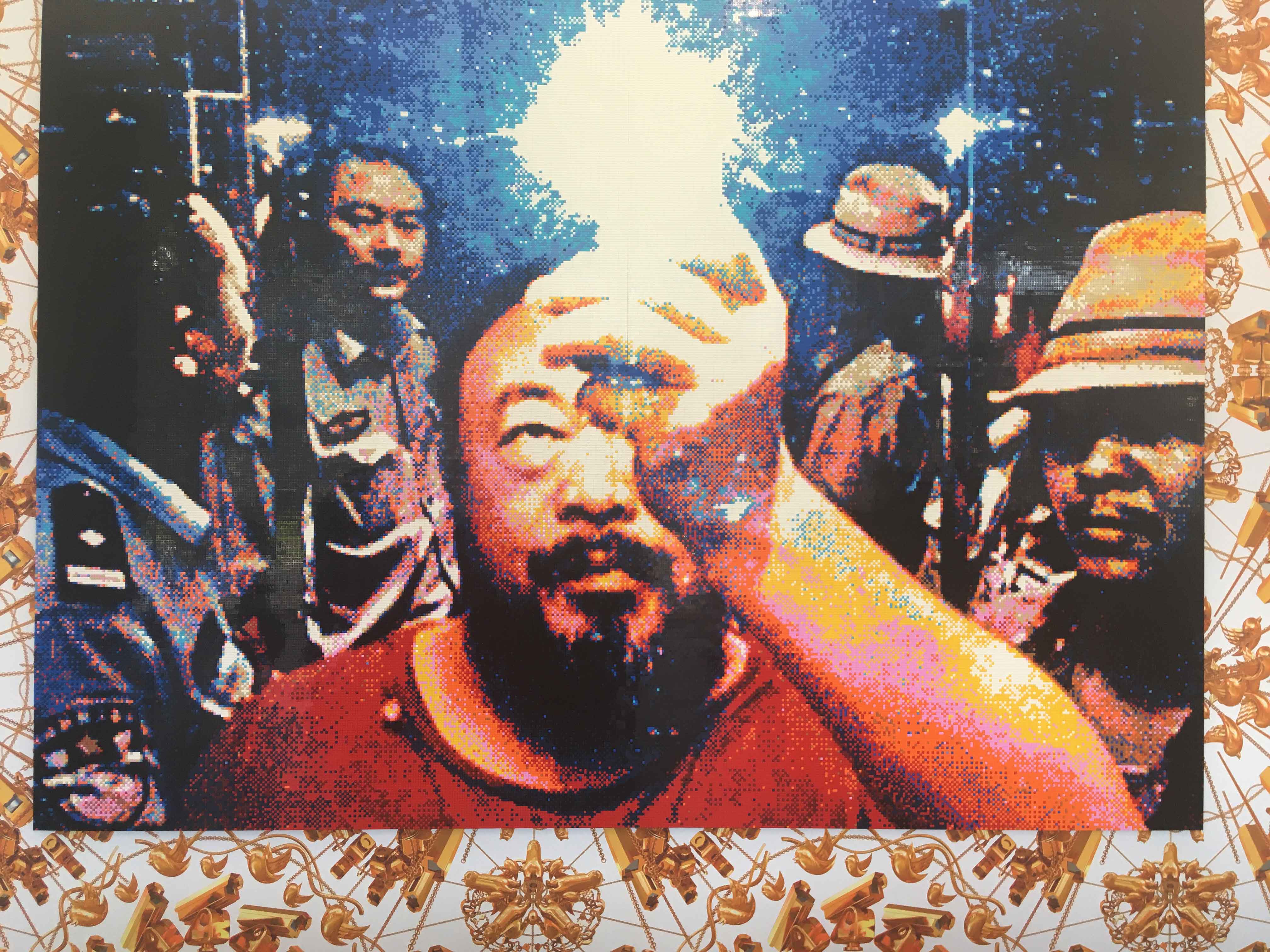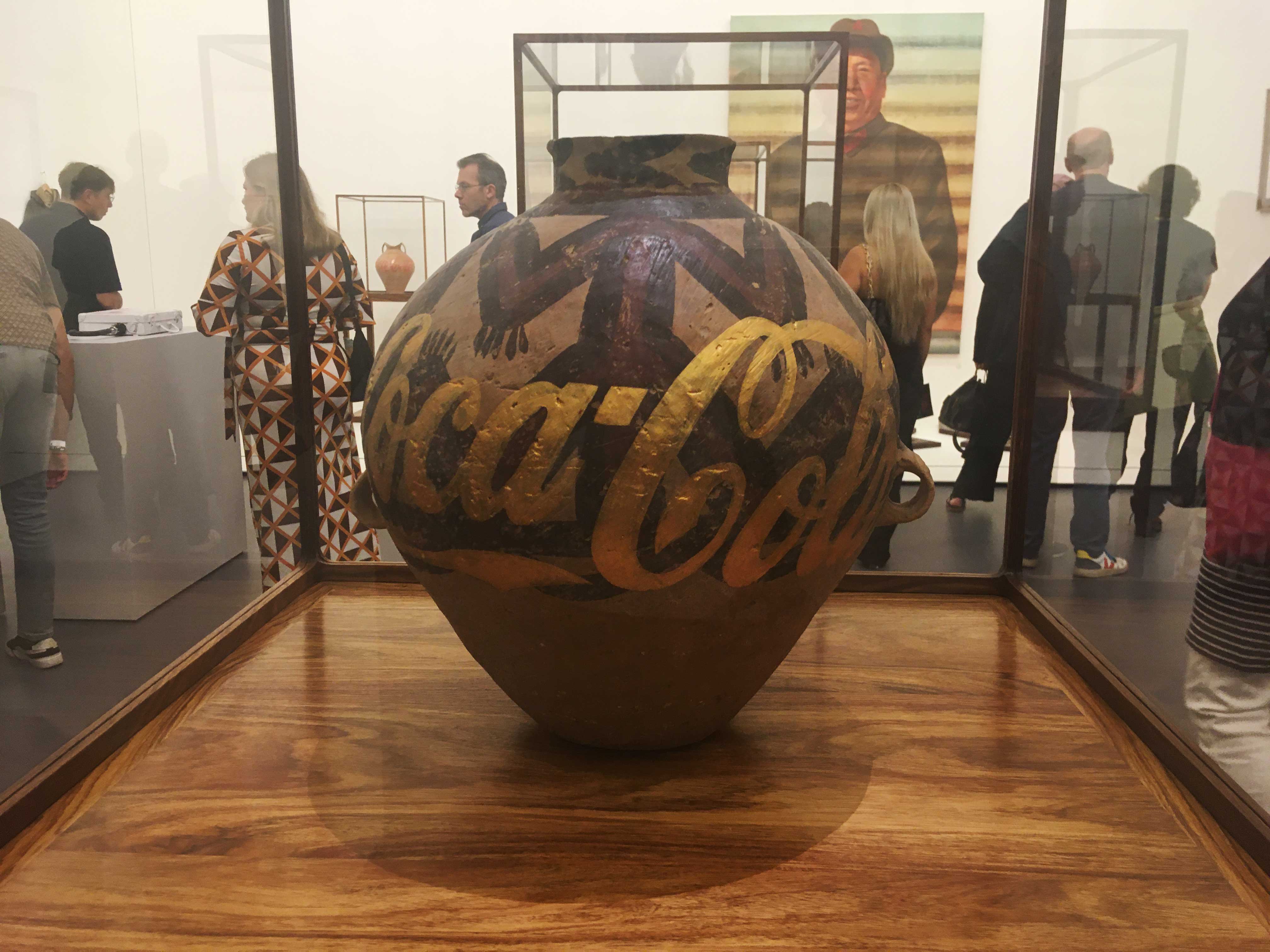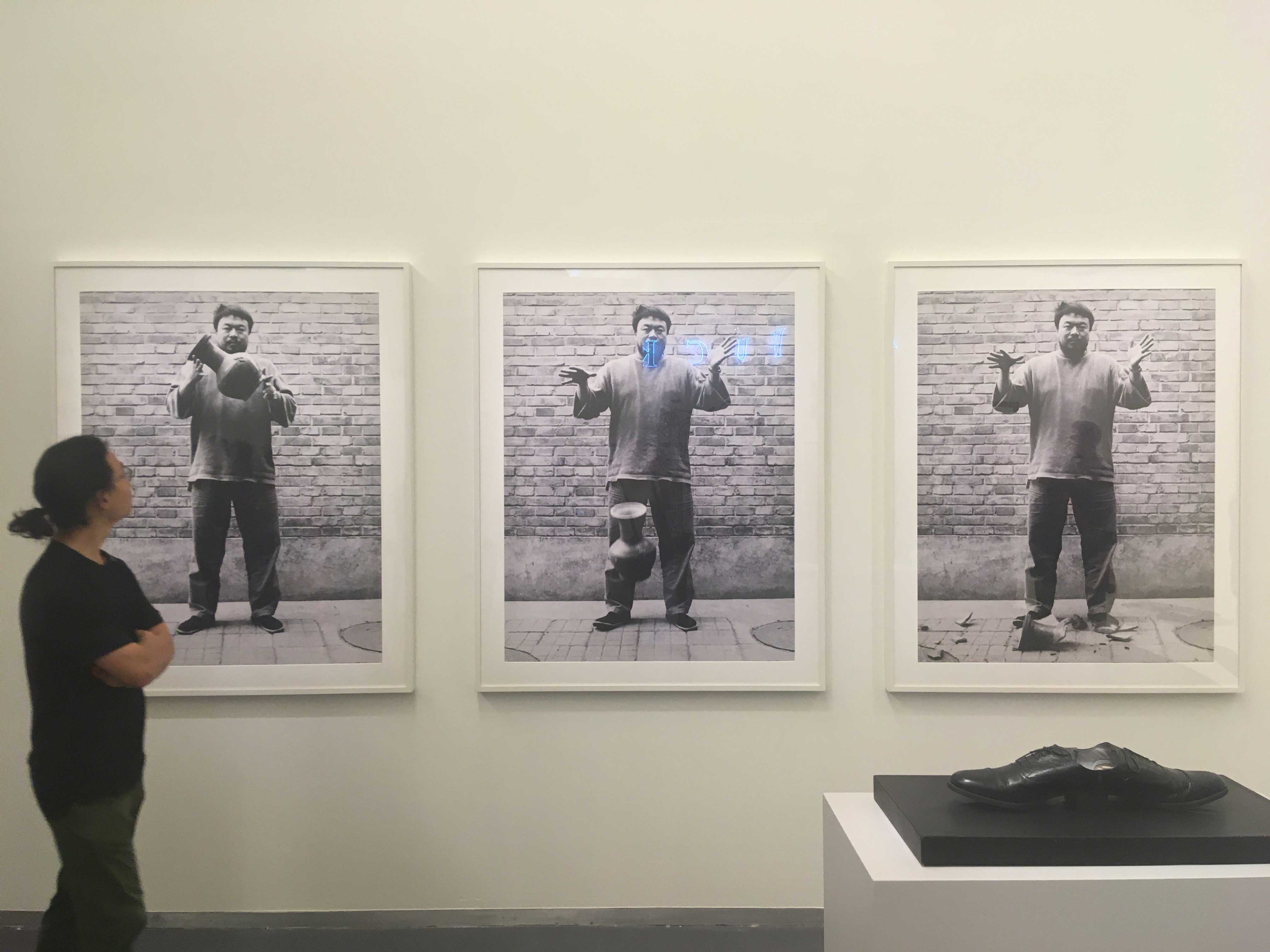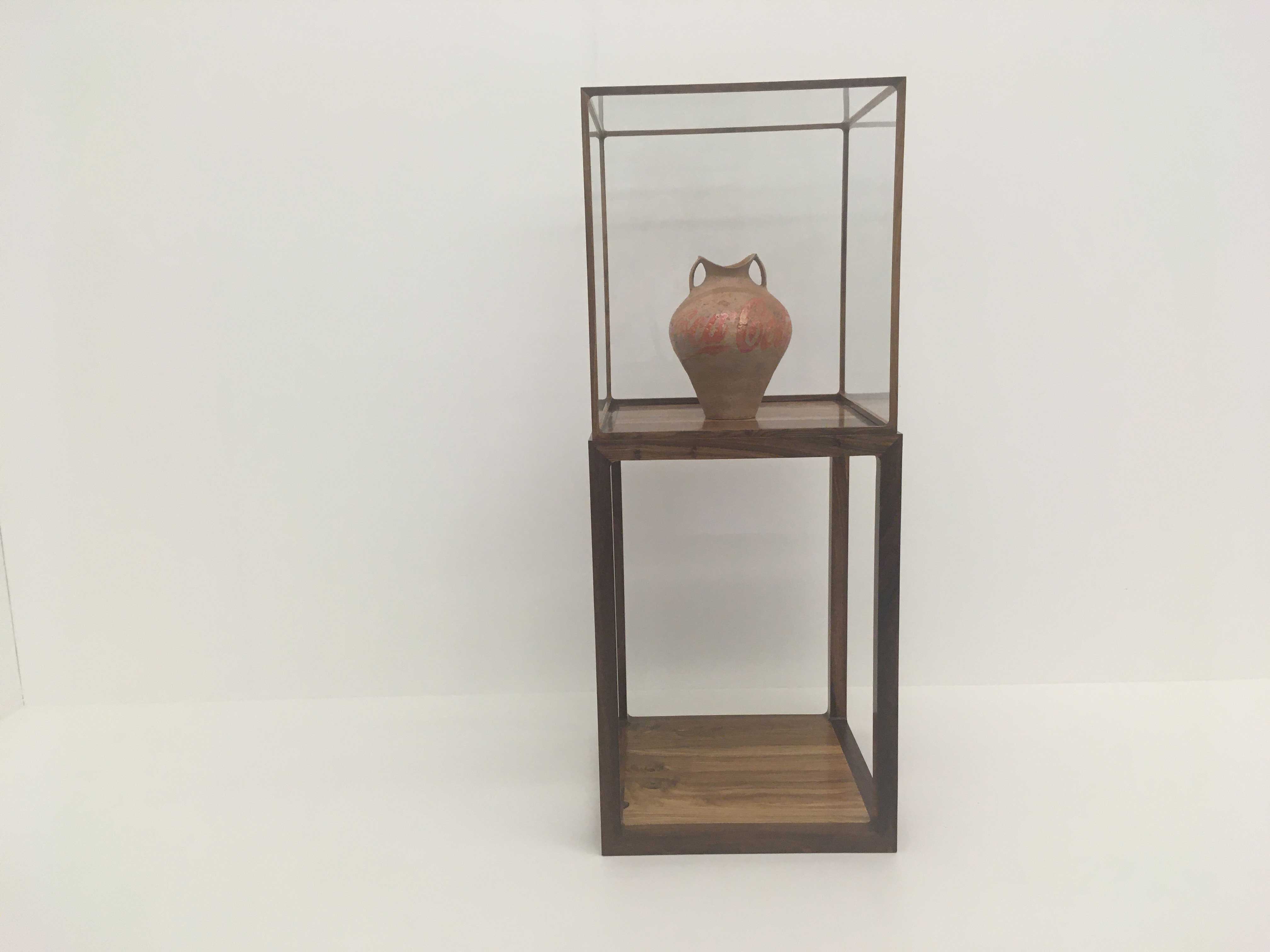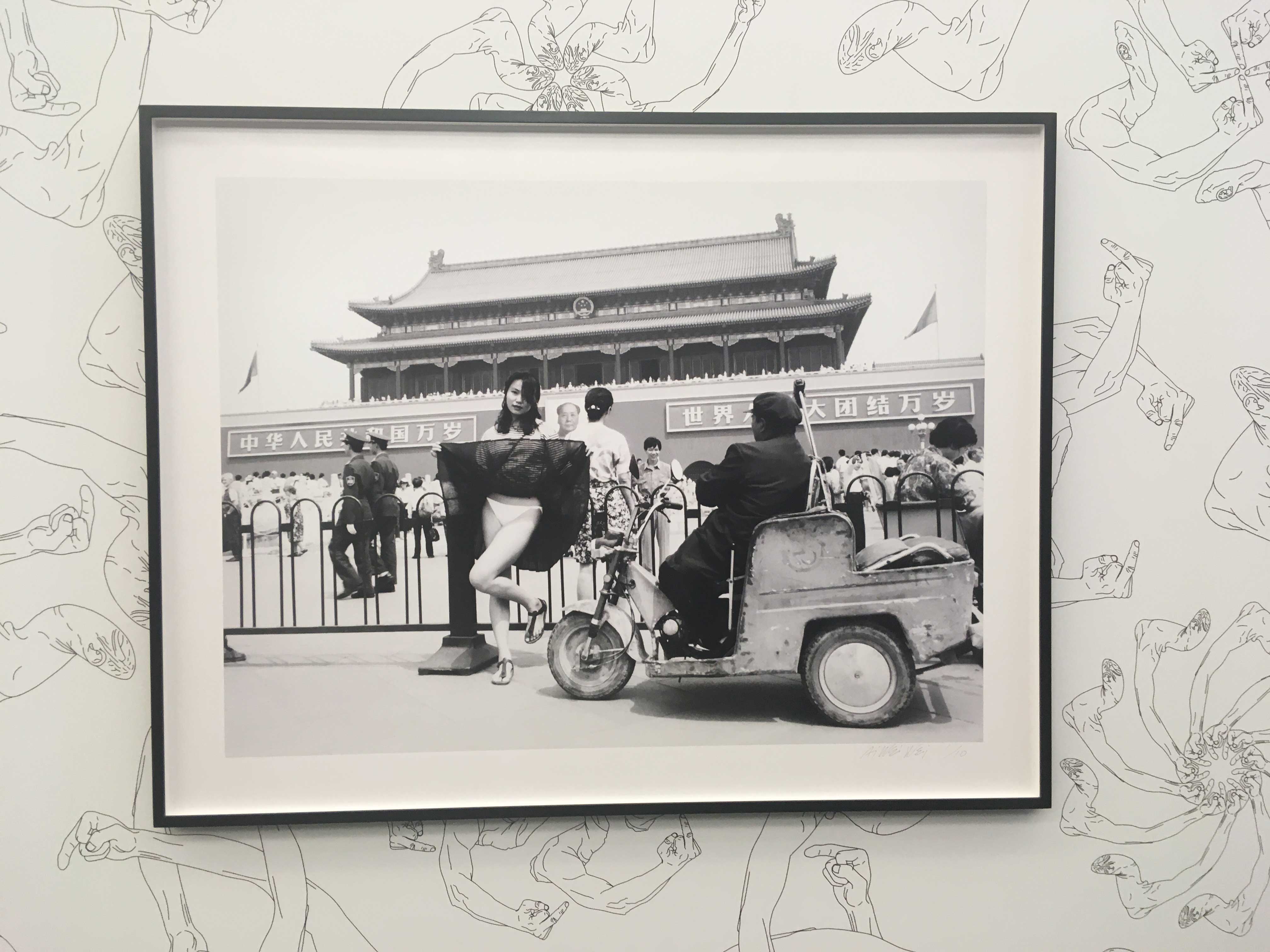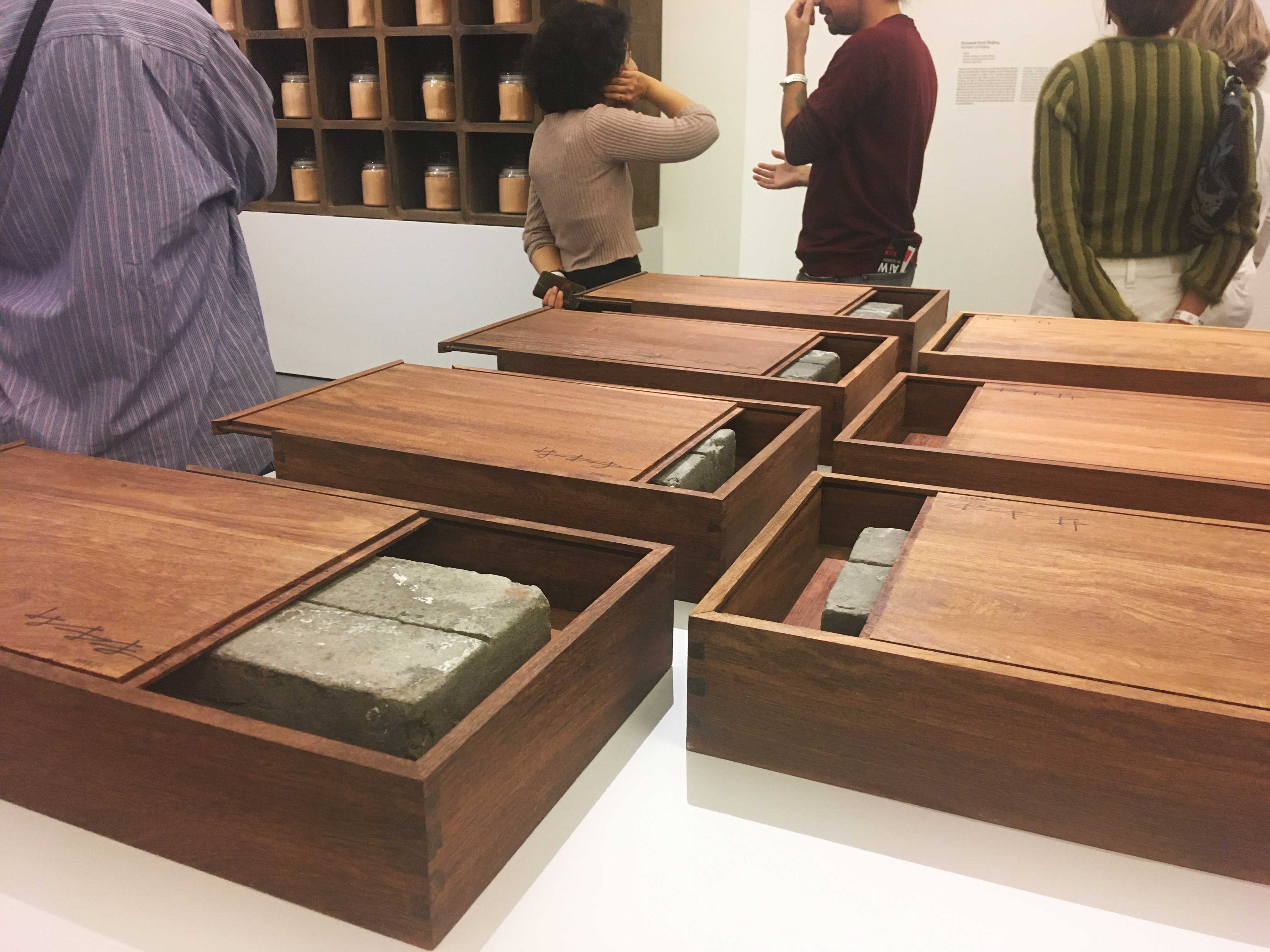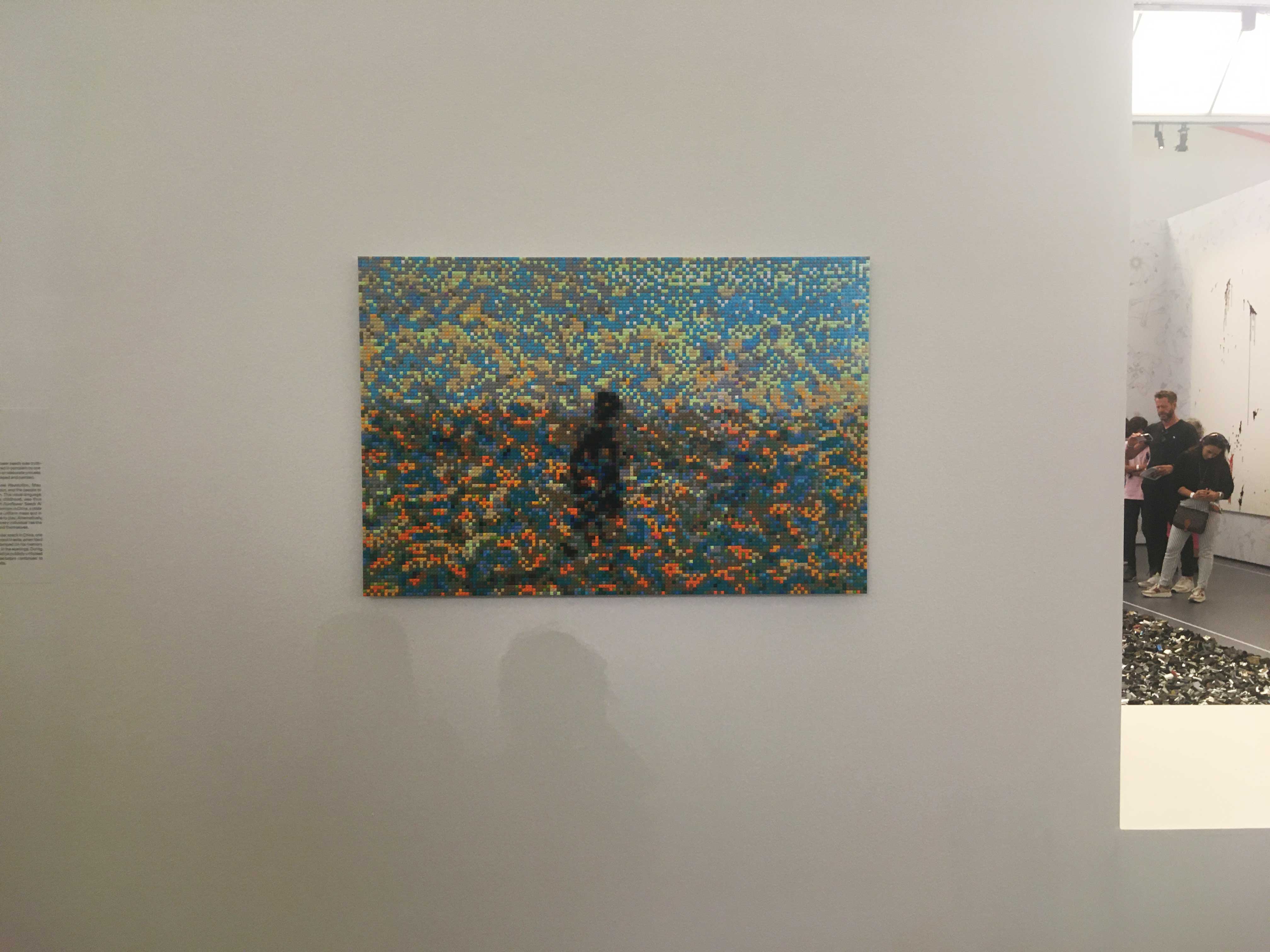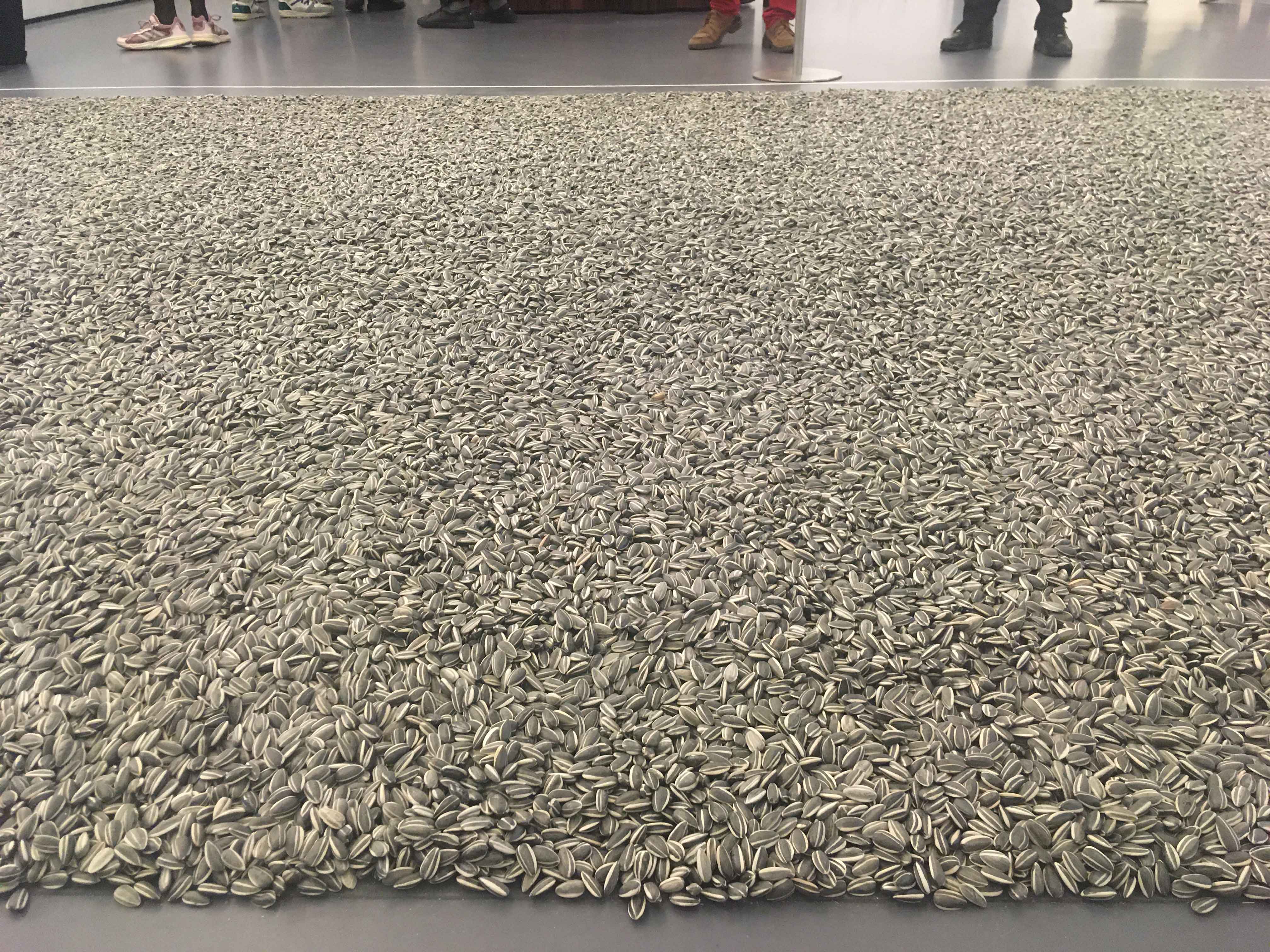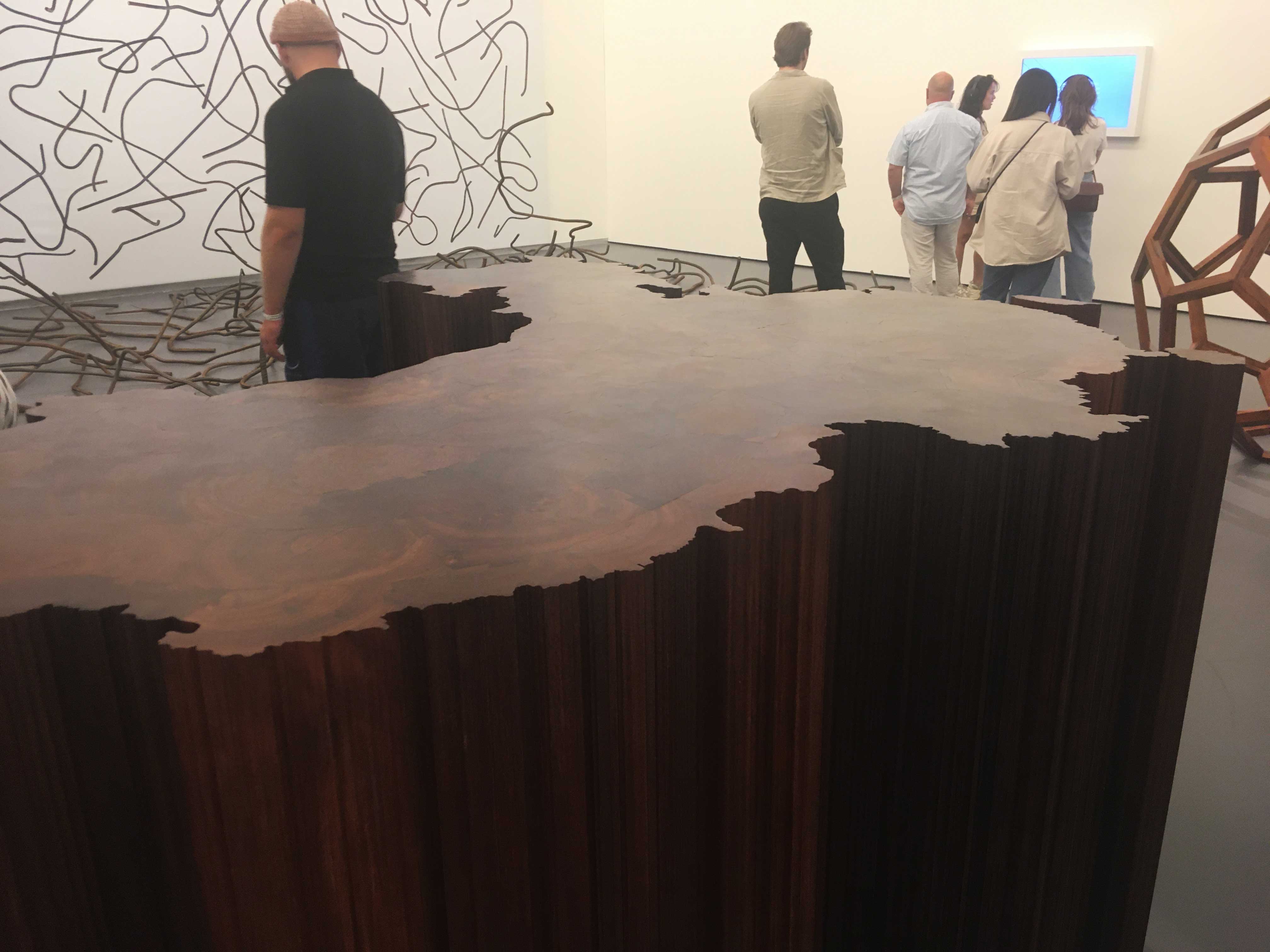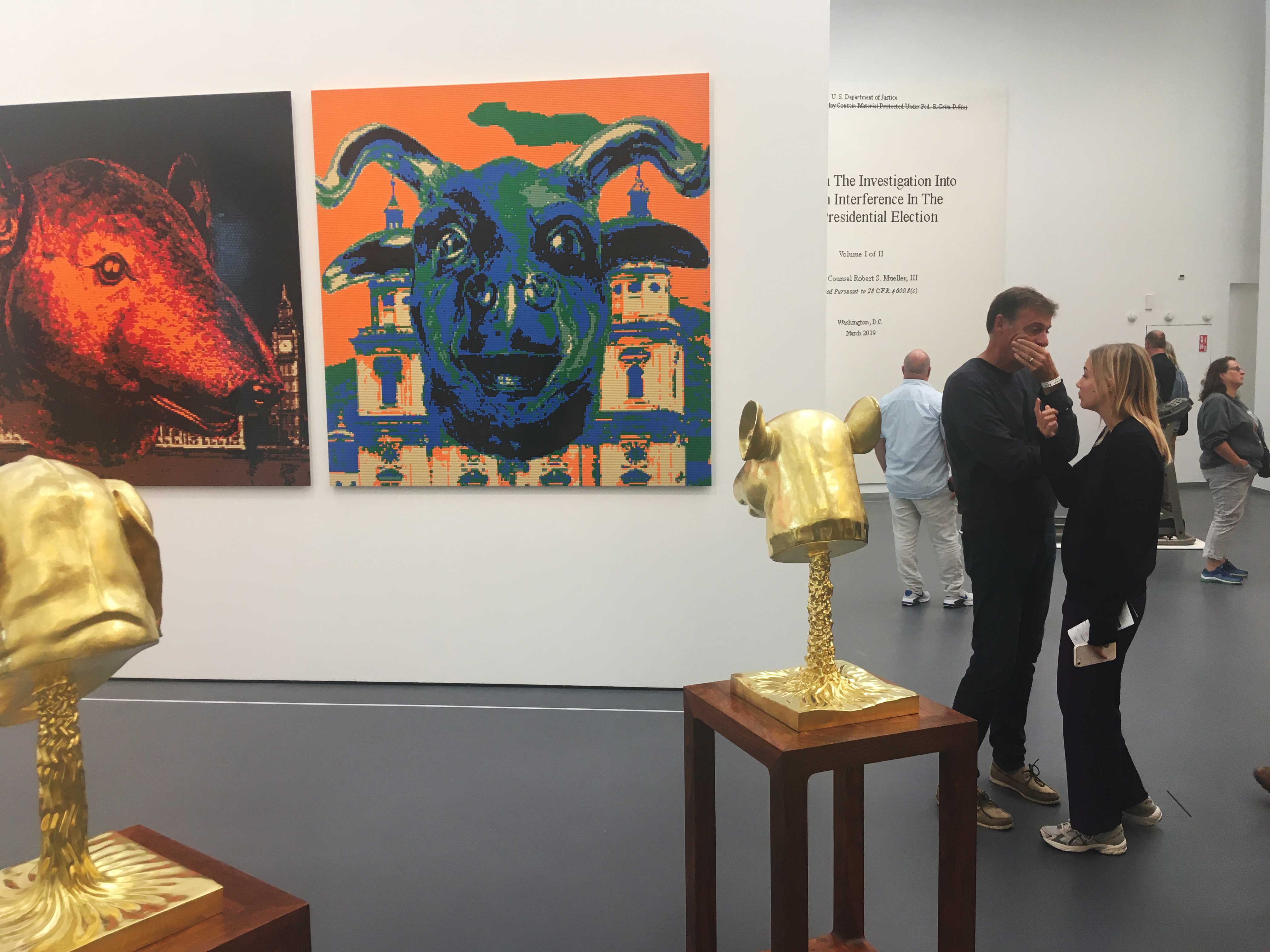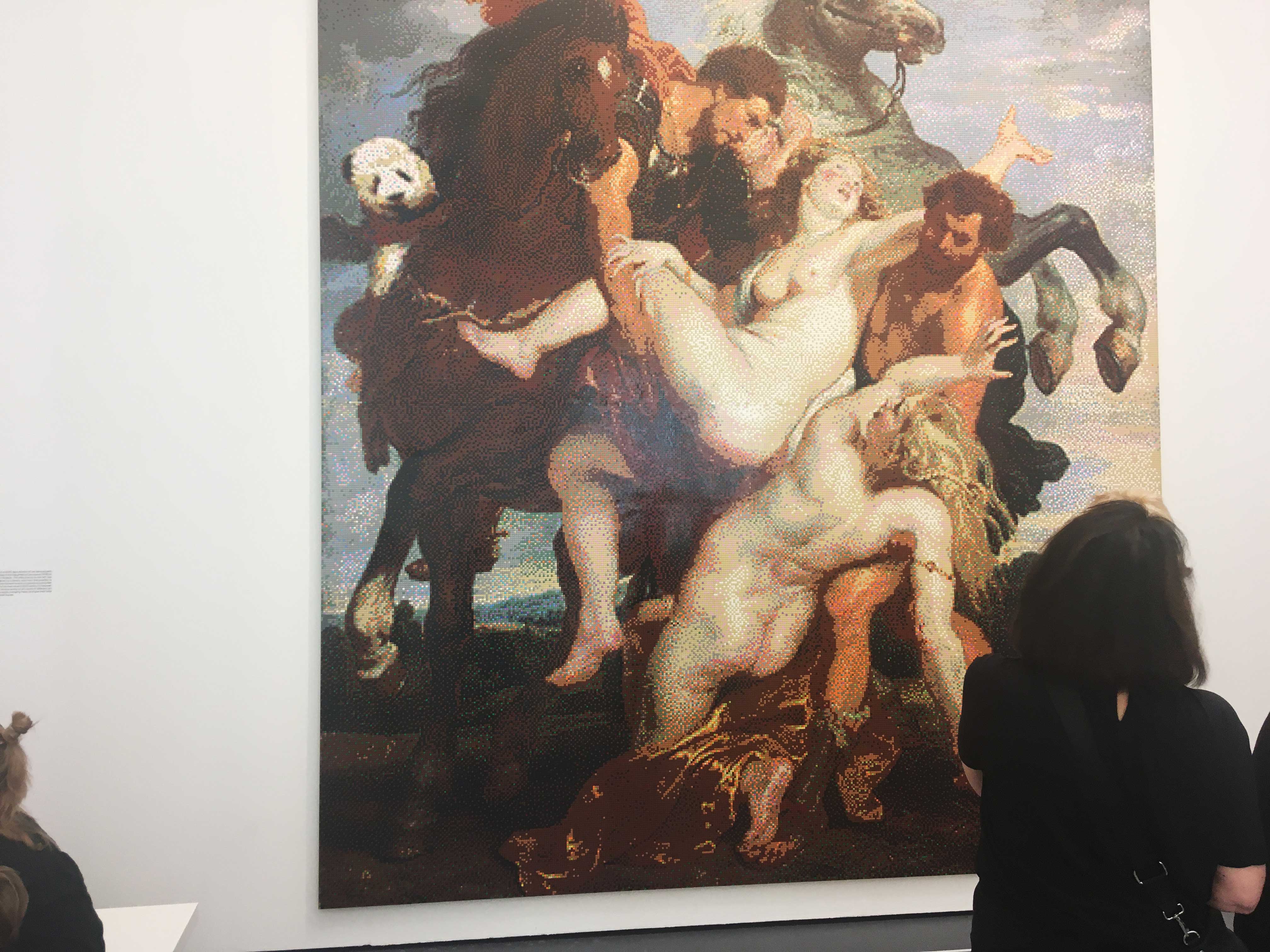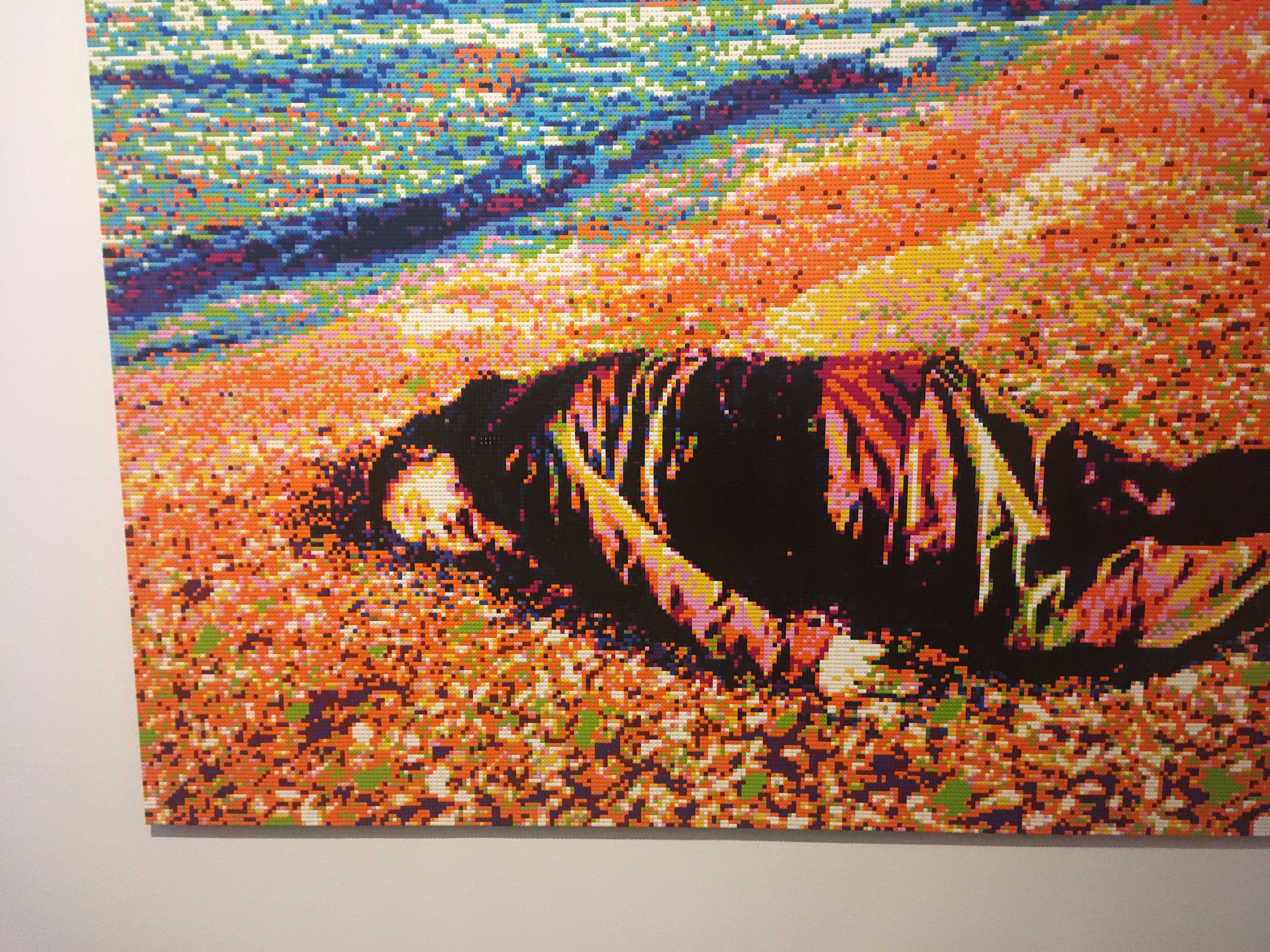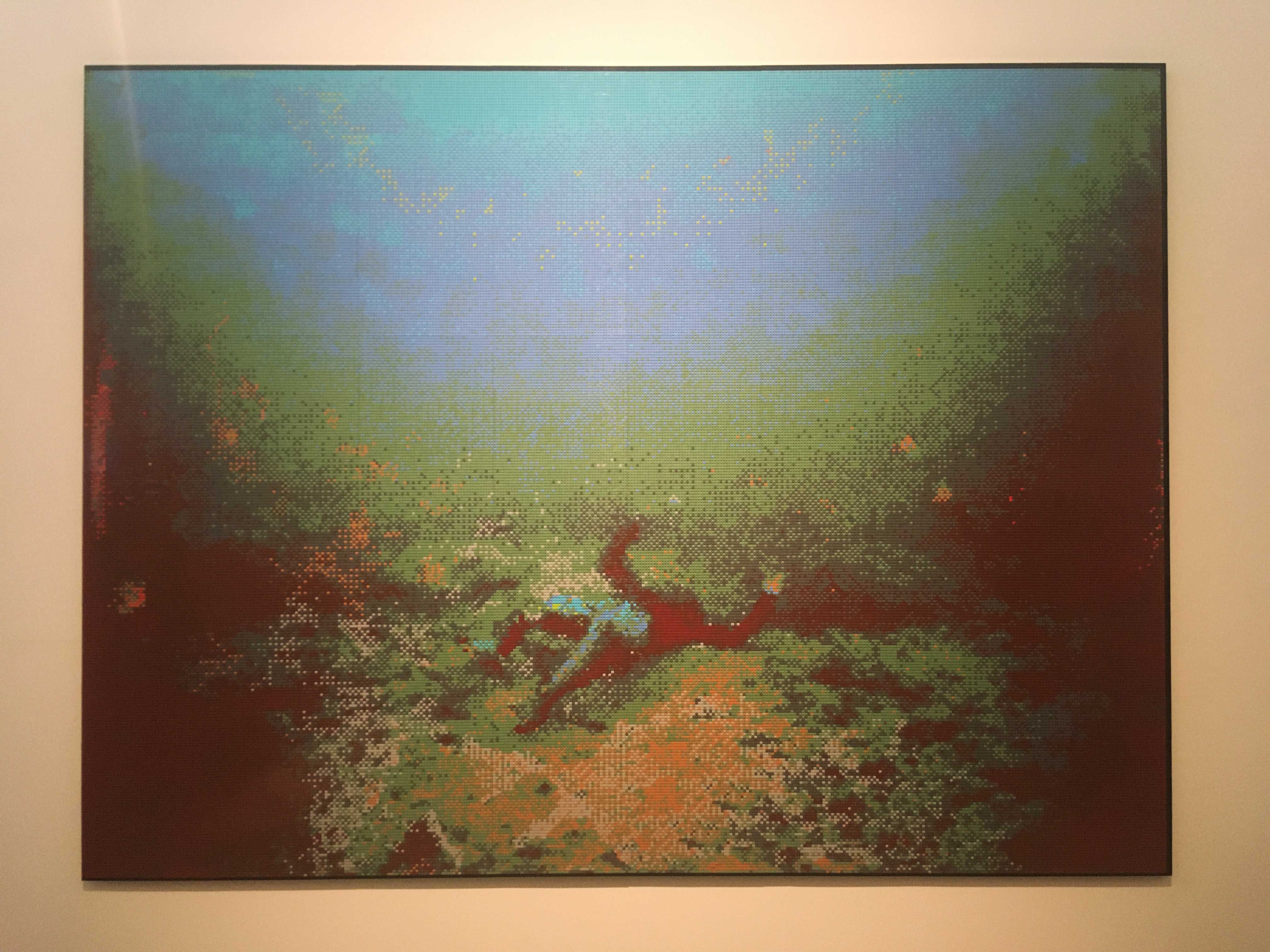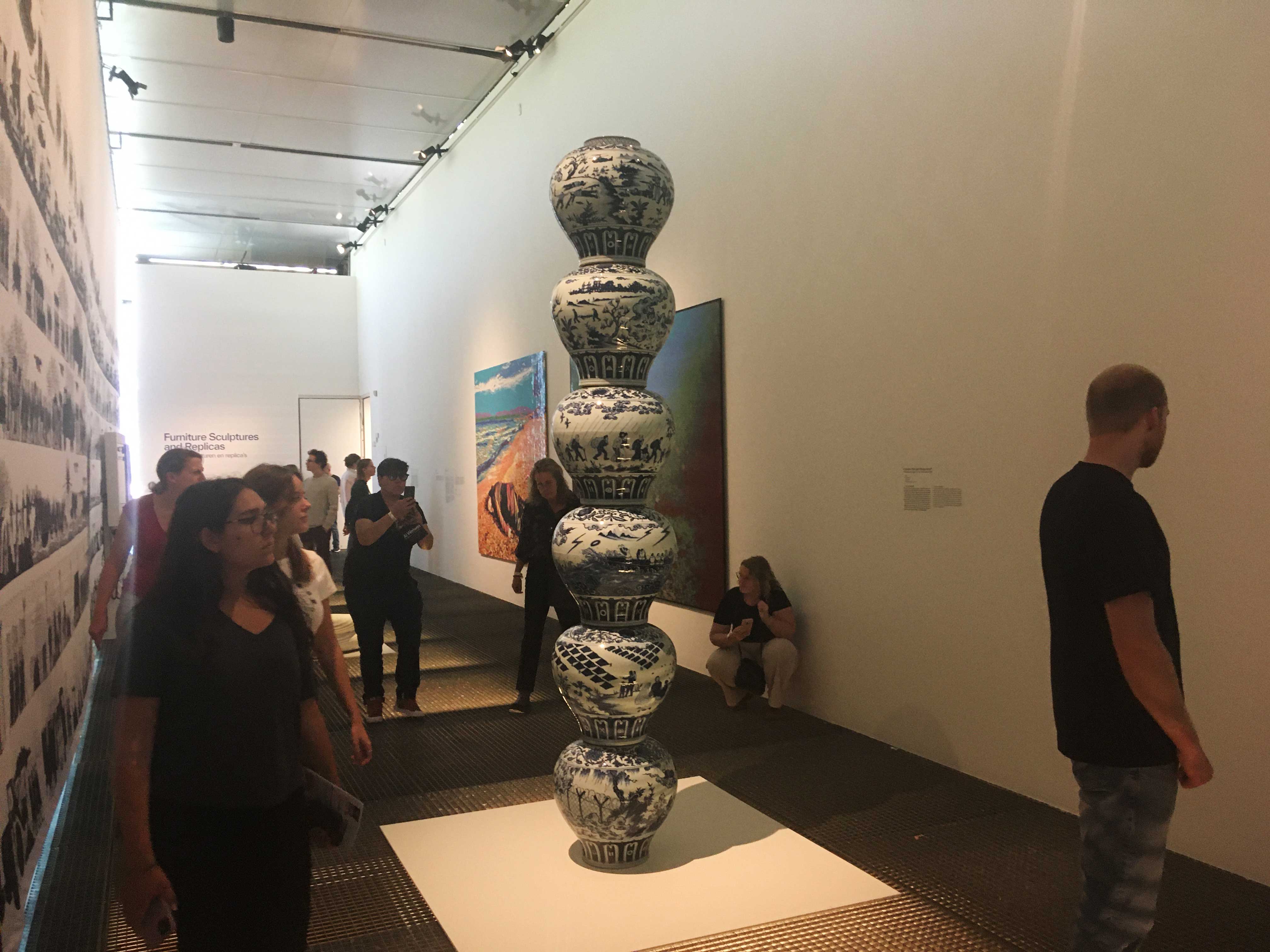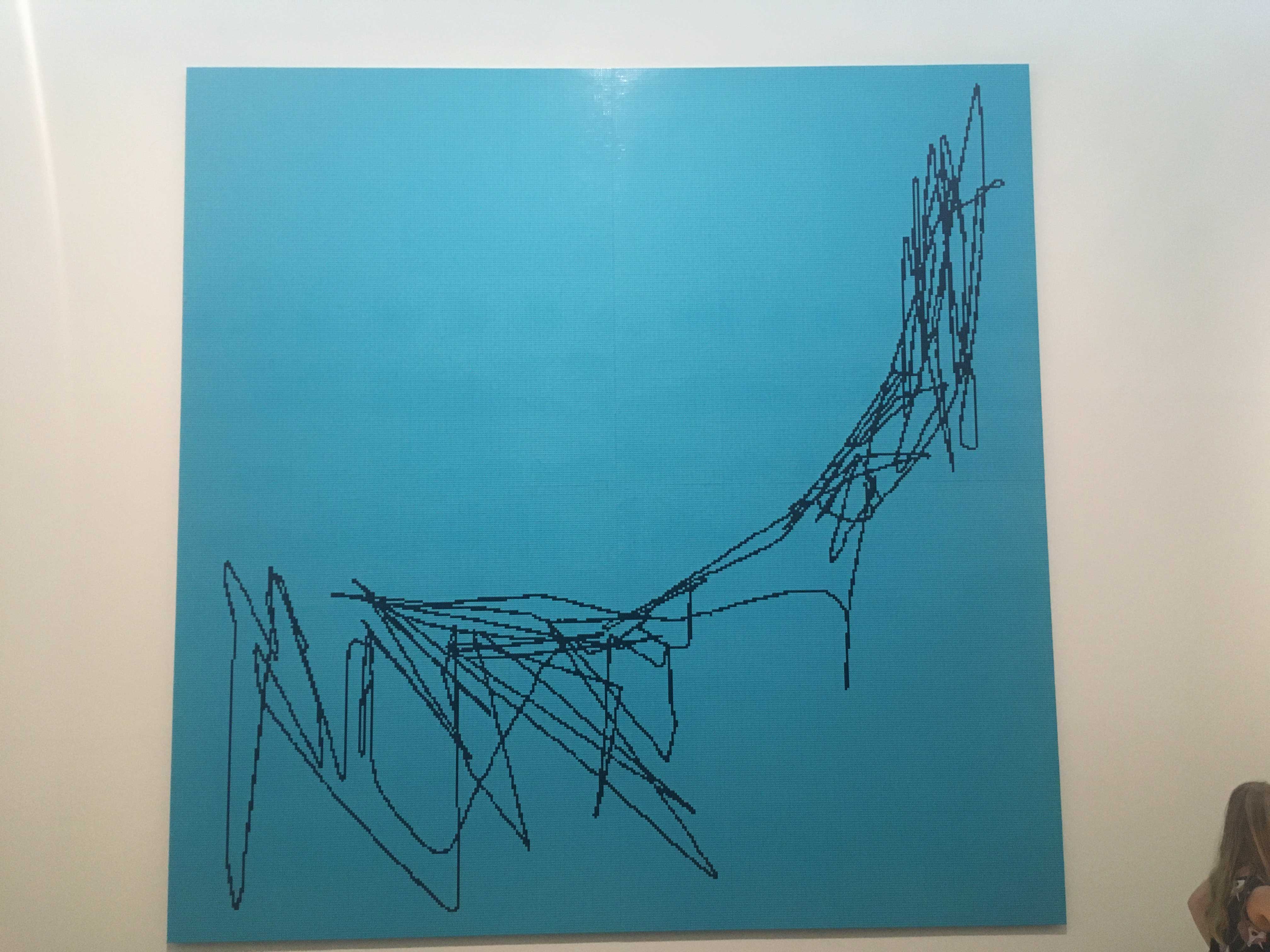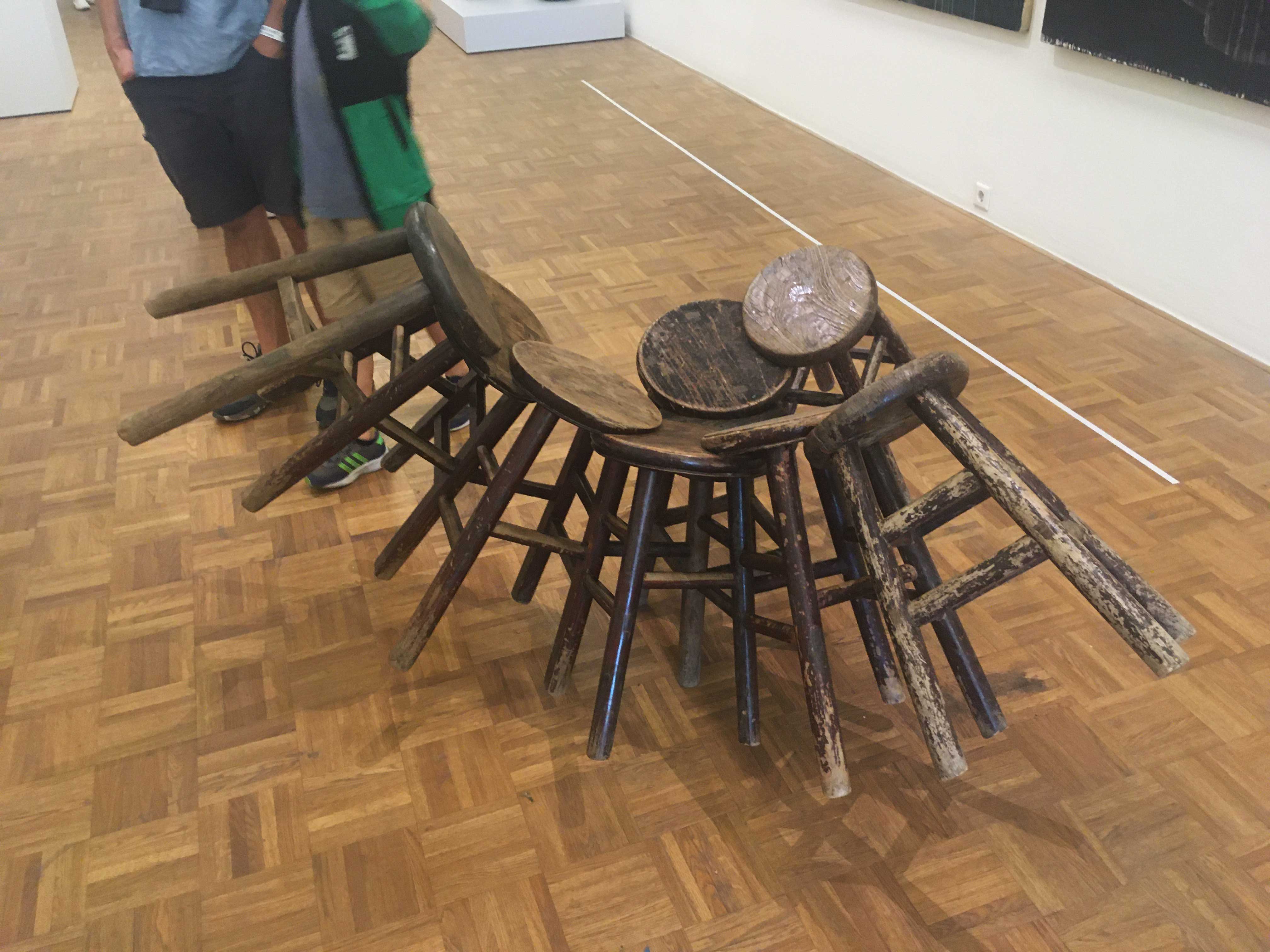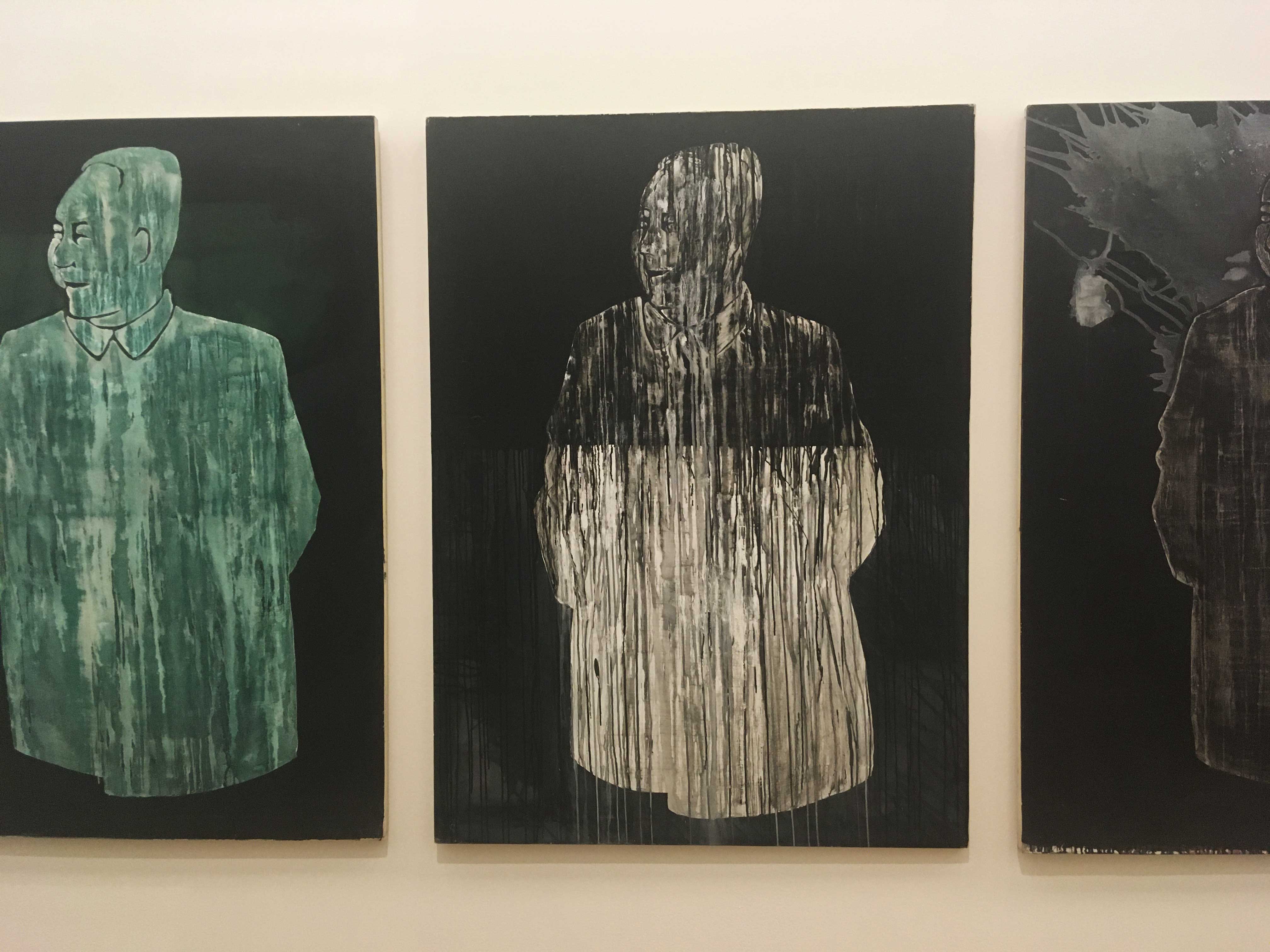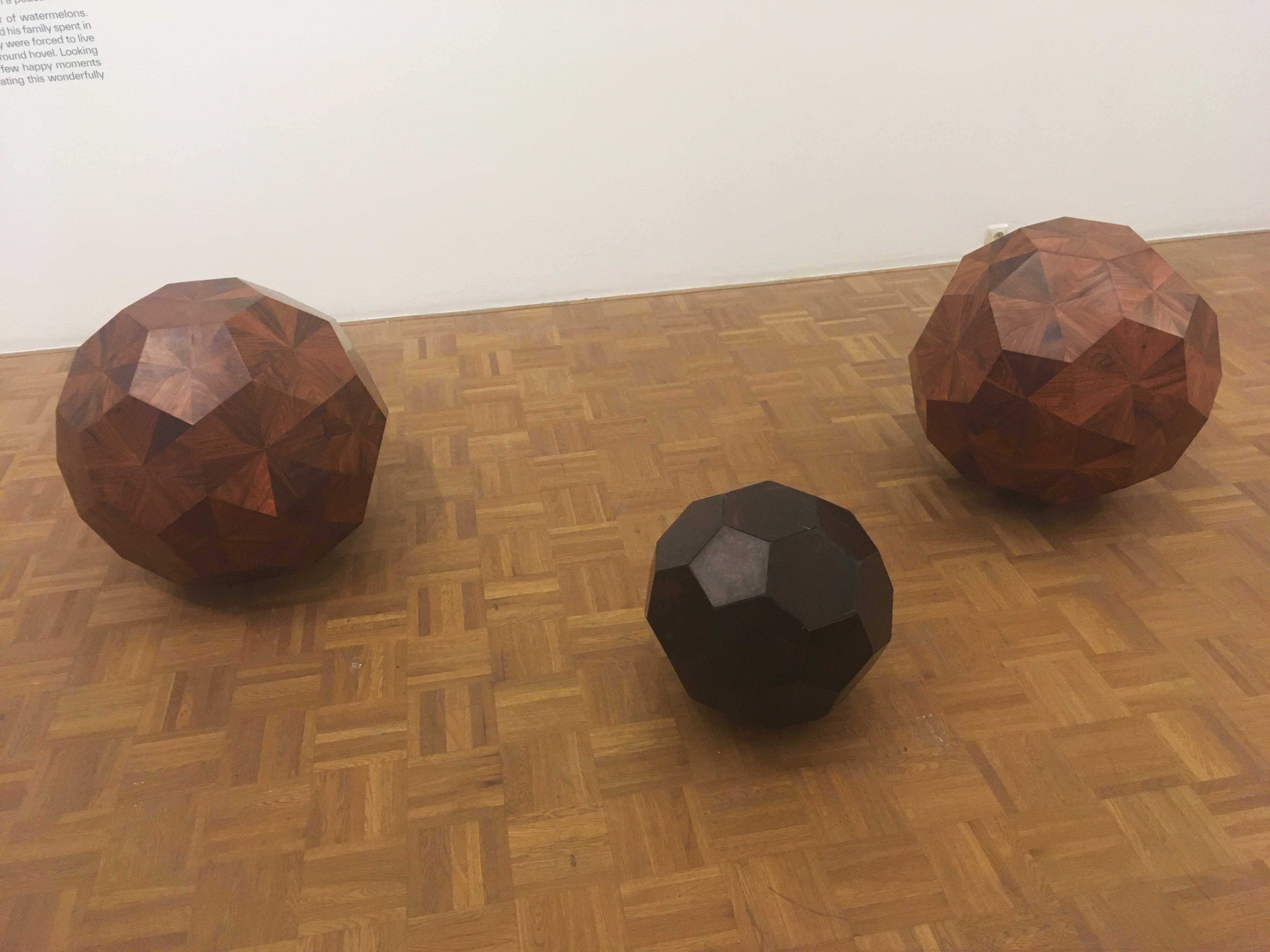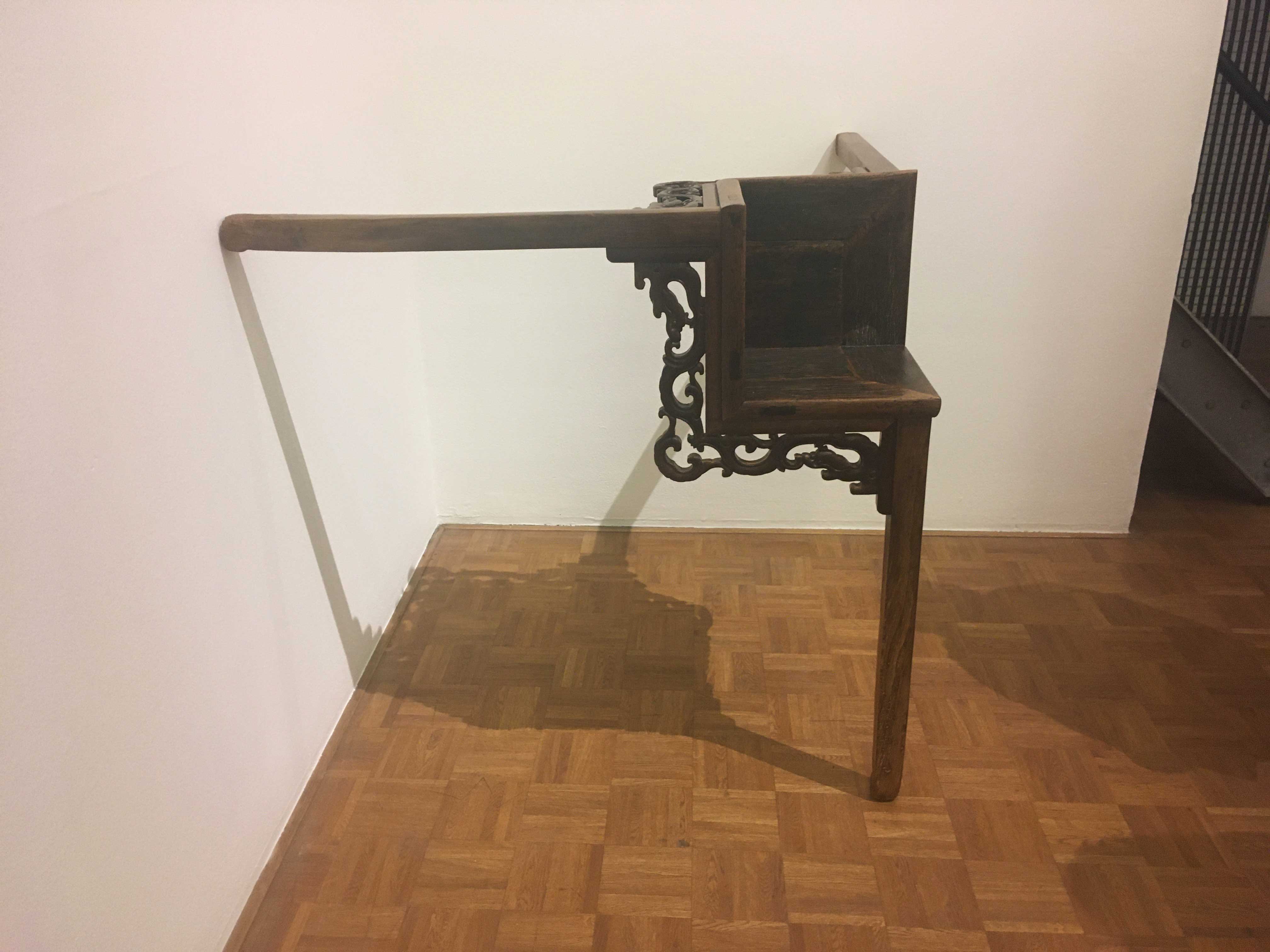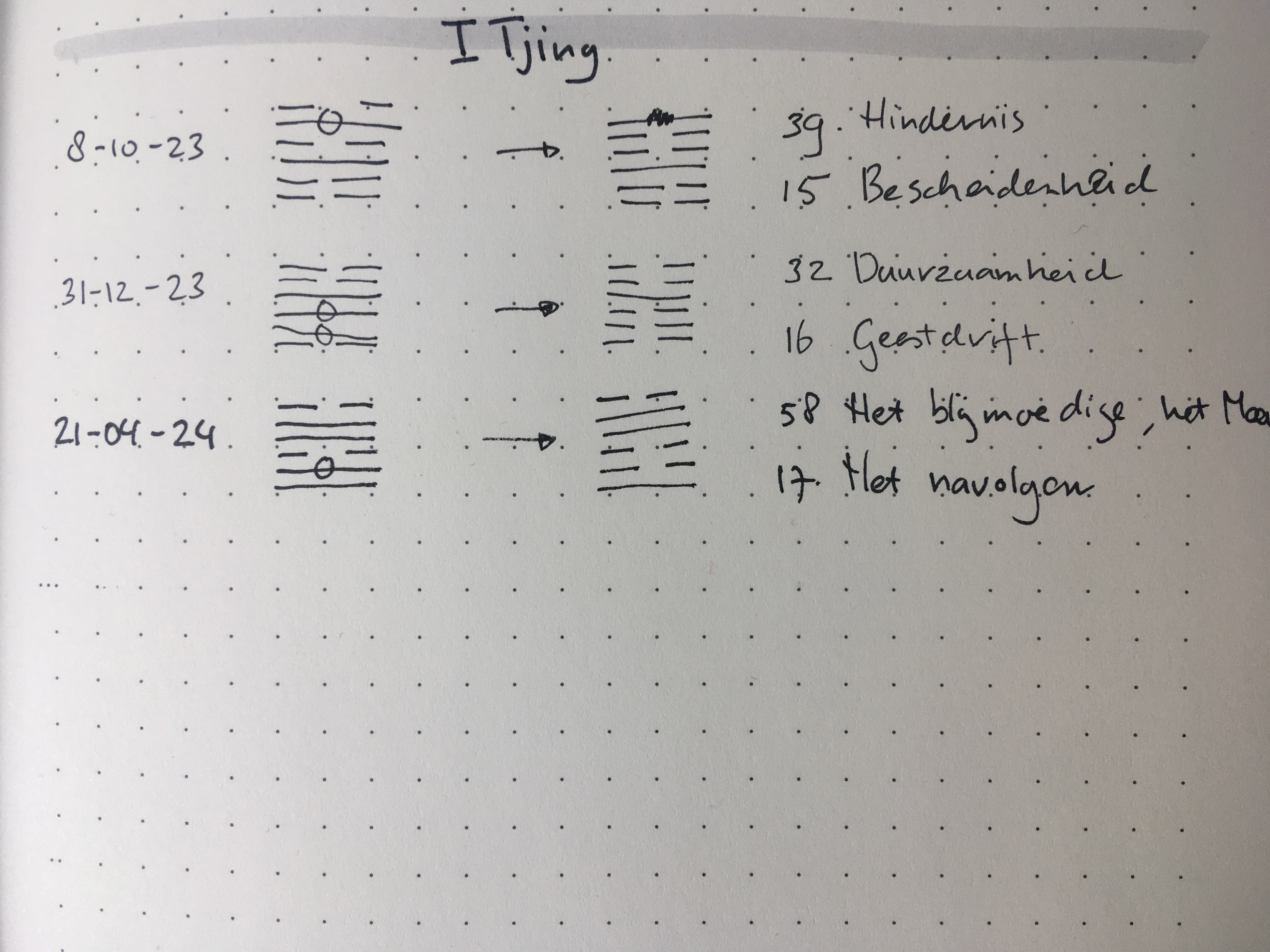
The Joyous Lake > Following
above TUI THE JOYOUS, LAKE
below TUI THE JOYOUS, LAKE
This hexagram, like sun, is one of the eight formed by doubling of a trigram.
The trigram Tui denotes the youngest daughter; it is symbolized by the smiling lake, and its attribute is joyousness. Contrary to appearances, it is not the yielding quality of the top line that accounts for joy here. The attribute of the yielding or dark principle is not joy but melancholy. However, joy is indicated by the fact that there are two strong lines within, expressing themselves through the medium of gentleness.
True joy, therefore, rests on firmness and strength within, manifesting itself outwardly as yielding and gentle.
THE JUDGMENT
THE JOYOUS. Success.
Perseverance is favorable.
The joyous mood is infectious and therefore brings success. But joy must be based on steadfastness if it is not to degenerate into uncontrolled mirth. Truth and strength must dwell in the heart, while gentleness reveals itself in social intercourse. In this way one assumes the right attitude toward God and man and achieves something. Under certain conditions, intimidation without gentleness may achieve something momentarily, but not for all time. When, on the other hand, the hearts of men are won by friendliness, they are led to take all hardships upon themselves willingly, and if need be will not shun death itself, so great is the power of joy over men.
THE IMAGE
Lakes resting one on the other:
The image of THE JOYOUS.
Thus the superior man joins with his friends
For discussion and practice.
A lake evaporates upward and thus gradually dries up; but when two lakes are joined they do not dry up so readily, for one replenishes the other. It is the same in the field of knowledge. Knowledge should be a refreshing and vitalizing force. It becomes so only through stimulating intercourse with congenial friends with whom one holds discussion and practices application of the truths of life. In this way learning becomes many-sided and takes on a cheerful lightness, whereas there is always something ponderous and one-sided about the learning of the self-taught.
° Nine in the second place means:
Sincere joyousness. Good fortune.
Remorse disappears.
We often find ourselves associating with inferior people in whose company we are tempted by pleasures that are inappropriate for the superior man. To participate in such pleasures would certainly bring remorse, for a superior man can find no real satisfaction in low pleasures. When, recognizing this, a man does not permit his will to swerve, so that he does not find such ways agreeable, not even dubious companions will venture to proffer any base pleasures, because he would not enjoy them. Thus every cause for regret is removed.
above TUI THE JOYOUS, LAKE
below CHêN THE AROUSING, THUNDER
The trigram Tui, the Joyous, whose attribute is gladness, is above; Chên, the Arousing, which has theattribute of movement, is below. Joy in movement induces following. The Joyous is the youngestdaughter, while the Arousing is the eldest son. An older man defers to a young girl and shows her consideration. By this he moves her to follow him.
THE JUDGMENT
FOLLOWING has supreme success.
Perseverance furthers. No blame.
In order to obtain a following one must first know how to adapt oneself. If a man would rule he must first learn to serve, for only in this way does he secure from those below him the joyous assent that is necessary if they are to follow him. If he has to obtain a following by force or cunning, by conspiracy or by creating faction, he invariably arouses resistance, which obstructs willing adherence. But even joyous movement can lead to evil consequences, hence the added stipulation, “Perseverance furthers” –that is, consistency in doing right– together with “No blame.” Just as we should not ask others to follow us unless this condition is fulfilled, so it is only under this condition that we can in turn follow others without coming to harm.
The thought of obtaining a following through adaptation to the demands of the time is a great and significant idea; this is why the appended judgment is so favorable.
THE IMAGE
Thunder in the middle of the lake:
The image of FOLLOWING.
Thus the superior man at nightfall
Goes indoors for rest and recuperation.
In the autumn electricity withdraws into the earth again and rests. Here it is the thunder in the middle of the lake that serves as the image–thunder in its winter rest, not thunder in motion. The idea of following in the sense of adaptation to the demands of the time grows out of this image. Thunder in the middle of the lake indicates times of darkness and rest. Similarly, a superior man, after being tirelessly active all day, allows himself rest and recuperation at night. No situation can become favorable until one is able to adapt to it and does not wear himself out with mistaken resistance.

